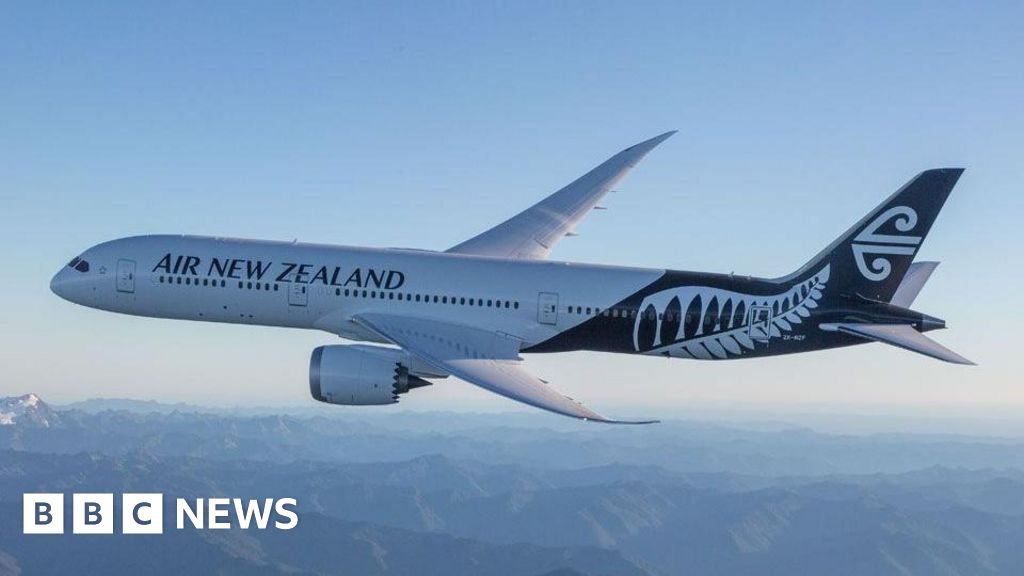- cross-posted to:
- climate@slrpnk.net
- cross-posted to:
- climate@slrpnk.net
Air New Zealand has abandoned a 2030 goal to cut its carbon emissions, blaming difficulties securing more efficient planes and sustainable jet fuel.
The move makes it the first major carrier to back away from such a climate target.
The airline added it is working on a new short-term target and it remains committed to an industry-wide goal of achieving net zero emissions by 2050.
The aviation industry is estimated to produce around 2% of global carbon dioxide emissions, which airlines have been trying to reduce with measures including replacing older aircraft and using fuel from renewable sources.



You can always detail something and say it’s only x percent. Every percent counts, and we have to start with the ones that are not vital. Planes for vacations or luxury mangoes are very far from being vital.
The way I see it, you’re taking away things people enjoy for a minuscule impact on climate. This will just piss people off for little benefit, and it’s not how you get people on board with the big changes we need to address the worsening climate. It’s like having to use shitty straws when industry is pumping gigatons of shit into the atmosphere. I believe the money pressure on airlines to use more efficient engines is actually doing a decent job at incentivizing efficiency in the air sector; it’s elsewhere that needs to be addressed harshly.
If externalities were actually enforced on the air sector, it would be completely replaced with high speed rail except for travel across the ocean, and even then shipping would become more prominent. The problem of giving free passes is you are artificially strangling the alternatives. It becomes much more cost effective to build high speed electric rail when your only option for jet fuel is biodiesel or paying the real costs of climate impact.
Right, it’s a lot better to give somebody a better alternative first if you want the public on board. Build up public transit, build up regional and high speed rail and leave planes for long distances that are unfortunately suited for trains and cars (e.g. international, cross-continental, etc.)
who defines what is miniscule here? what if an oil baron deems 20% to be miniscule? do we all go swimming in their blackened beaches?
how is 2% miniscule? and who says that emission reduction exercises have to stop at 2%?
it’s sometime very easy to minimise the seriousness of something with the clever use of generic statements. there are enough spin doctors already trying to pull the wool over our eyes–we don’t need to help them by also shooting ourselves in the foot.
It is not taking away vacations or delicious fruits, there are many lower impact alternatives for vacations and food, you just have to get out of the habits and trends, there are great things to discovers everywhere.
Also, I don’t advocate for prohibition but rather for reduction proportional to footprint. Your dream is to take the plane to go to another continent? Do it, but maybe once every 5 years instead of every year, and switch to train and discovery of your region with hiking for the other years.
If we don’t start taking away things that people enjoy then in a hundred years it won’t be an issue anymore 👍
I start in a similar place but go the other direction. Airline travel is an important personal luxury, and crucial to global business or politics. While in the ideal it may be unnecessary, you’re not going to get people to give it up willingly, and they’d argue there’s no other option for such travel. So, what can we do?
The industry is great at adopting efficient technology but it can’t even keep up with growth in demand, much less reduce carbon emissions. So what else can we do?
I agree, having alternatives to air transportation is key. Trains are second. Just banning air transportation or imposing some fees will just make people angry and, I believe, hamper progress towards reducing the amount of CO2 we’re putting into the atmosphere.
That attitude is how you make no progress on climate